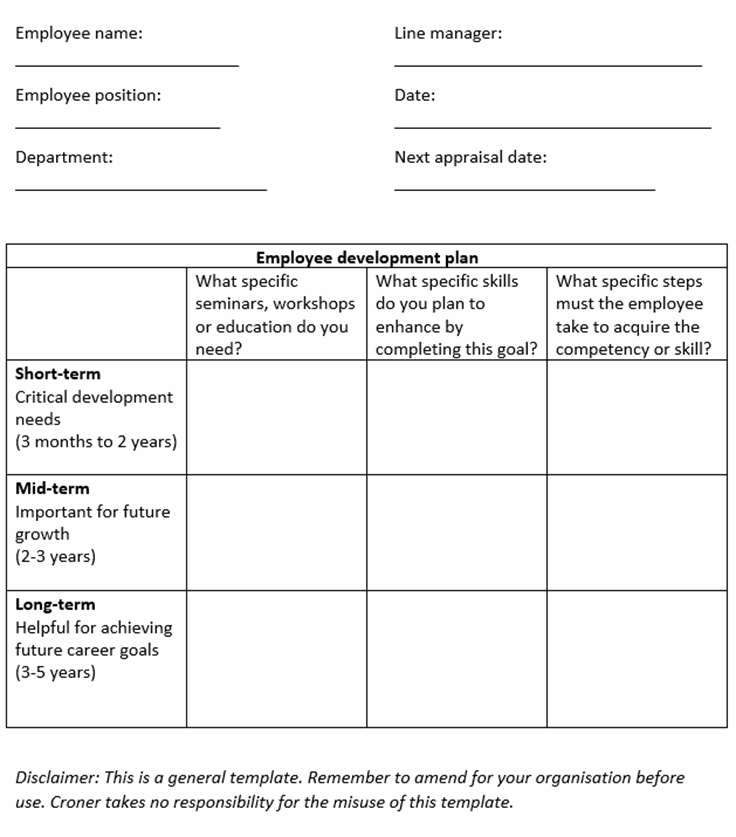Employees have plans for their personal and professional lives. From getting married to having children, to gaining promotions and pay rises and everything in between.
And because everyone is different, their plans are bound to differ.
So you need to consider individual employee development. This term refers to the process of supporting your staff through training programmes. The aim is to develop new skills, knowledge, or enhance existing abilities.
This piece explores the process of creating individual employee development plans and introducing them to the workplace. It also highlights the benefits of investing in employee training and development.
What is the goal of employee development?
In today’s working environment, most businesses are now aware of the value of employees—as well as the importance of retaining them.
You should acknowledge the need to invest in self-development plans for employees to train, nurture, and develop their skills and knowledge.
It’s a major factor influencing your staff’s retention, engagement and morale, especially amongst Millennials.
The aim is to prepare employees to face adverse and unforeseen conditions or challenges on the job.
When done correctly, it can directly affect engagement, productivity, and absenteeism within your workforce as well as improving overall business goals.
Apart from improving retention rates, other benefits of employee training and development include:
- Reduced employee turnover.
- Increases job satisfaction, morale and motivation.
- Decrease inefficiencies in work processes.
- Up-to-date knowledge of the latest industry trends and practices.
- Enhanced company image.
You may be wondering how training and development improves employee motivation. While businesses understand the need for motivated employees, a common misunderstanding is these motivations should be monetary.
Although your staff may welcome it, financial rewards only go so far to address the feeling of stagnation or a decrease in the motivation of your staff.
According to a 2018 survey by Linkedin, over 93% of employees said they would stay at a company that invests in their careers. It’s an indicator you value their contributions to your organisation and are including them in your plans for the future of your organisation.
Implementing your employee development plans
A well-thought-out plan leaves you and your employee happy.
It should provide them with a clear direction for their career as well as the skills and experience needed to progress.
And for you, it’ll provide experienced and highly skilled staff with up-to-date knowledge of industry trends that’ll further your business goals.
Before you begin the career development process for employees, you’ll first need to talk to them about their plans and goals for the future.
The best way to do this is by conducting staff appraisals. As well as highlighting their current work performance and challenges, an effective appraisal process will also help you to identify areas of development for employees relevant to their future aims and objectives. Click here to download a free-to-use appraisal form template.
Once decided, you then have to consider how their aims align with your business goals. After that, you'll come up with employee development ideas that’ll further their skills and knowledge.
The most common methods of self-development normally involve expensive online courses or time-consuming classroom training. Instead, you can consider:
- One-on-one on-the-job training.
- Local networking groups.
- Stretch assignments.
An employee development plan template
These plans come in many forms and may differ depending on your industry.
While you may find various examples of employee development plans online, you should consider creating one designed specifically for your business.
Consider the template below as a guide for what you should include.

Expert Support
Contact us today for advice and guidance on creating an effective business development plan. Talk to one of our employment law experts on 0808 145 3380.
Related resources
Categories
- Business Advice
- Contracts & Documentation
- Culture & Performance
- Disciplinary & Grievances
- Dismissals & Conduct
- Employee Conduct
- Employment Law
- End of Contract
- Equality & Discrimination
- Health & Safety
- Hiring & Managing
- Leave & Absence
- Managing Health & Safety
- Moving
- Occupational Health
- Pay & Benefits
- Recruitment
- Risk & Welfare





